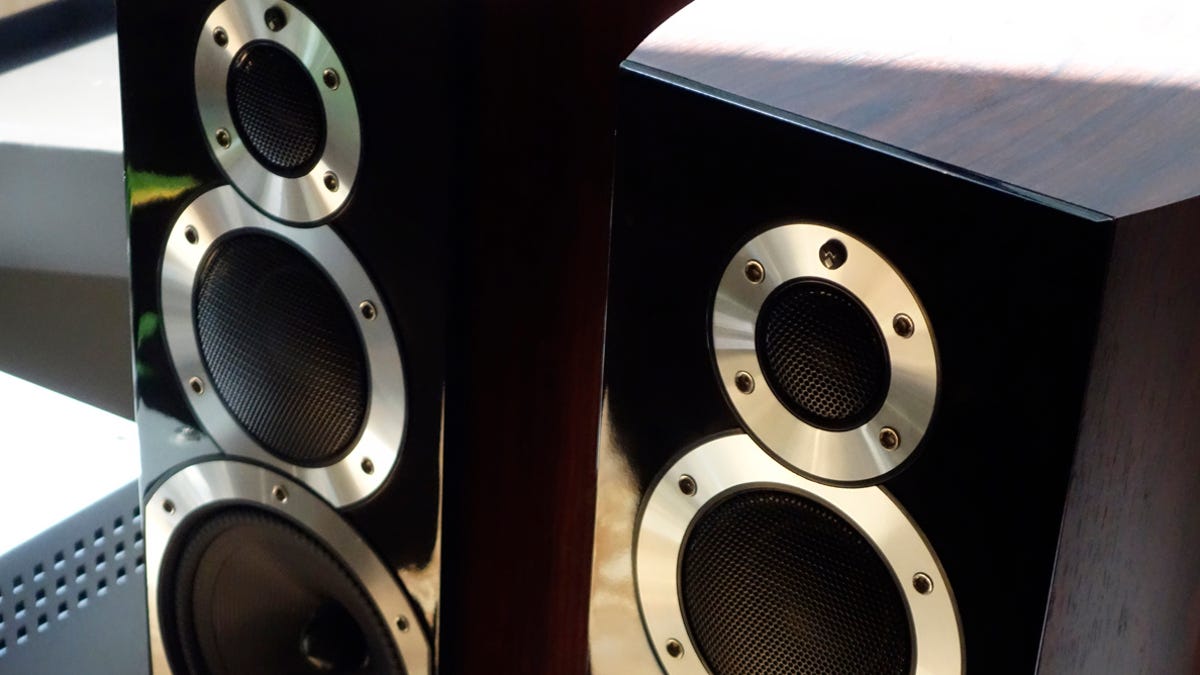Buy used speakers and save a bundle -- here's how
The Audiophiliac spells out what you need to know about buying used speakers.

The best speakers tend to be expensive, but you can save a bundle by buying used ones. Of course, before buying any speaker, new or used, it's a good idea to listen to them, for a number of reasons, starting with "do you like the sound?"
KEF LS50 speakers
When shopping in person for used speakers , start by playing quiet music and put your ear up close to each driver and make sure it's producing sound. Next play music moderately loud, and listen for distortion, crackling, buzzing or other noises. If you hear distortion that's not part of the music, don't buy the speakers!
Are the cabinets free of cracks, scratches, nicks, discolorations and so on? Look at the back of the speaker and make sure the connectors aren't broken. Next, ask yourself, do the speakers have any odd odors? Speakers owned by heavy smokers may smell really bad.
If you're buying online, have the seller send detailed images of the drivers, cabinet and connectors. Definitely ask if the seller has played the speakers, and not just to confirm they make sound, but also if they sound like they're not broken!
This is really important: does the seller have the speakers' original cartons and internal packing materials? If they don't, shipping midsize or larger bookshelf or tower speakers safely is problematic. Unless the seller has some expertise in packing and shipping speakers, I would advise against buying large and heavy speakers without original boxes and packing materials. Small speakers are much easier to ship, as long as the seller takes some care in packing them.
Steer clear of speakers with dented drivers like this
Audio dealers that sell used gear sometimes offer warranties on used products, which might be worth paying extra for. Some offer return or exchange privileges; before you buy, ask about the dealer's policies. Sellers of used audio such as Audiogon, Audio Classics and of course eBay are good places to start online searches.
Before buying an expensive set of used speakers, find out if the manufacturer is still in business, and find out if they service their older models, and if they still stock replacement parts. When speakers are 20 or more years old the drivers may have dried out or weakened. When in doubt, proceed with caution. Sure, if you stumble on a decent looking set of speakers for $20/£15/AU$25 in a thrift shop or yard sale that you can't play, they might still be worth taking a chance on. When the price gets serious, do your due diligence!
As for speaker brands I like, here's a list, but it's far from complete: Aerial Acoustics, Boston Acoustics, Bowers & Wilkins, Definitive Technology, Dynaudio, Focal, Harbeth, JBL, KEF, Klipsch, Magnepan, Martin-Logan, Monitor Audio, NHT, Paradigm, PMC, Polk, PSB, Revel, Snell, Sonus Faber, Spendor, Tannoy, Thiel, Vandersteen, Wharfedale, Wilson Audio and Zu Audio. Any of those brands' speakers would be worth checking out.

